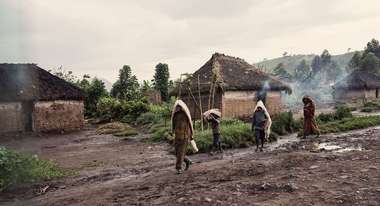Global Food Security is a Matter of Fairness
Hunger and malnutrition are primarily caused by inequality in our global agricultural and food system.
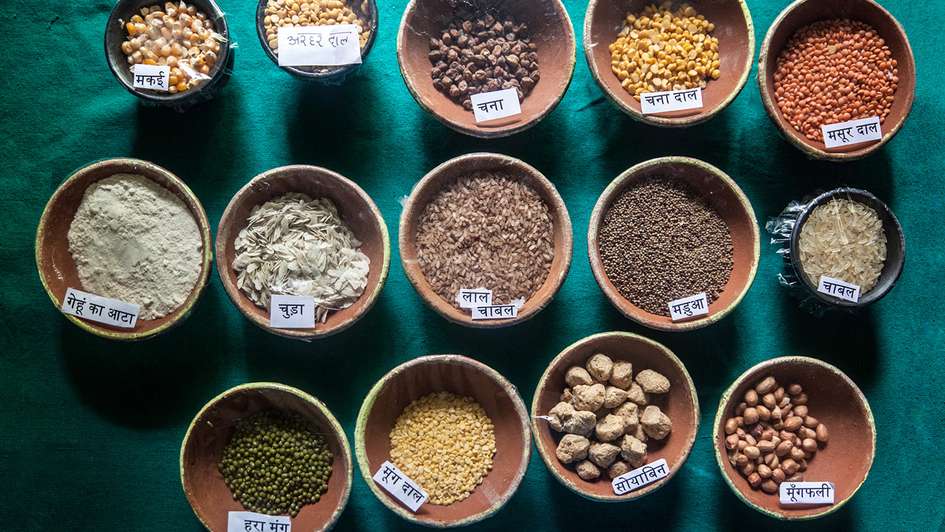
While there is enough food for everyone in the world, billions of men, women and children nevertheless suffer from food insecurity. Small farmers in rural areas in particular do not have the money for balanced nutrition. Welthungerhilfe (WHH) is advocating a rethink for more social justice and ecological sustainability around the world. The organisation links sustainable and poverty-focused development strategies at local, national and international level as a means of making the sustainable development goal of zero hunger by 2030 possible.
India: structural reforms safeguard nutrition
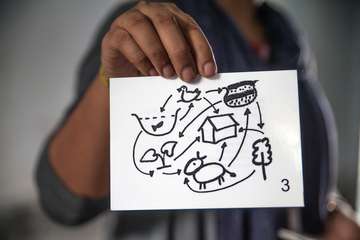
India is a prime example of misguided development policy. It is the second-largest food producer in the world, it has enjoyed great economic success, and the right to food is anchored in the Indian constitution. Despite this, over 200 million Indians suffer from hunger.
WHH helps landless and marginalized small farmers in India to secure their food supply through integrated agricultural operating systems. We work with partners and the local population to develop locally adapted strategies designed to ensure healthy nutrition. Women and men alike set up vegetable gardens and seed banks, intensify rice cultivation, construct irrigation systems, keep animals or breed fish, and process their produce for resale in order to create income. These measures have enabled them to increase the variety of produce in their fields, on their plates, and at the market, thereby leading to balanced nutrition. In 2023, WHH reached almost 1.7 million people in India through our projects.
Holding the state to account
The Indian government has launched many programs to bring about improved nutrition and health among mothers and children, to introduce school meals, and to create job opportunities. However, this assistance unfortunately does not reach disadvantaged people located further away from the centers of power. WHH helps these families to claim their rights while providing training for community administrative officials and decision-makers who are responsible for implementing state programs.
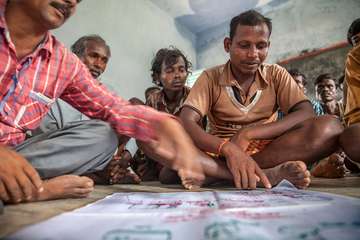
In the state of Madhya Pradesh alone, newly trained government representatives have informed 650,000 women about their rights through participative training methods. Over 100,000 children under the age of two have benefited from workshops for child welfare. WHH’s partner organizations have directly trained 10,000 women and 5,000 children in matters relating to healthy nutrition and hygiene. The village residents are now in dialogue with community representatives and are able to check their access to government programs using systematized evaluation cards. This allows people to take control of their own development at the local level.
Shared responsibility between North and South
To achieve a world without hunger, industrialized nations must also take responsibility. After all, their demand for biomass for fuel, animal feed, and industrial products is immense and is leading to more land being used for monoculture-based biomass production – particularly in developing countries.
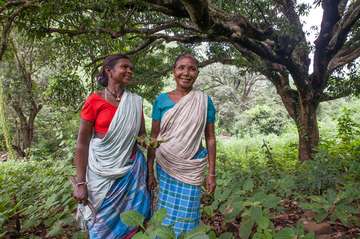
Overexploitation of nature has also had profound social consequences in many areas, such as land-grabbing and rising food prices. Our resource-intensive lifestyle speeds up climate change and increases vulnerability. It leads to increasingly frequent droughts and catastrophic storms and floods in developing countries, resulting in poverty, hunger and malnutrition. This is why in addition to supporting affected people at the local level, WHH is involved in many national and international networks in Germany, Europe, and the United Nations. WHH is helping to change the structural causes of hunger and malnutrition and to establish the human right to food through these political efforts.
WHH's goals
-
Make small-scale farmer agriculture a global priority for food and nutrition security
-
Gear production and supply systems for the provision of healthy nutrition
-
Consistent fulfillment of the human right to food
-
Ensure global agricultural and nutrition systems are geared towards healthy nutrition and ensure social justice, ecological sustainability, and sustainable management
-
Stronger promotion of regional production and supply systems
-
Make price calculations reflect the ecological and social costs of industrial mass production. This would make sustainable cultivation methods and animal husbandry more competitive
-
Ensure Germany and the European Union consider the effects of all political measures (including in terms of trade, energy, economic policy, agriculture, climate, and finance) on the food systems of other countries
-
Ensure governments offer incentives for healthy nutrition from sustainable production, for example by prioritizing sustainably produced, fairly traded agricultural produce in public procurement
-
Enable civil society to work unhindered as a watchdog of governments







